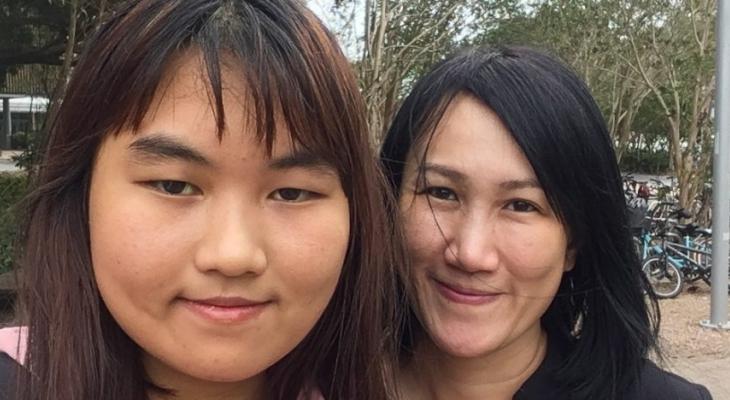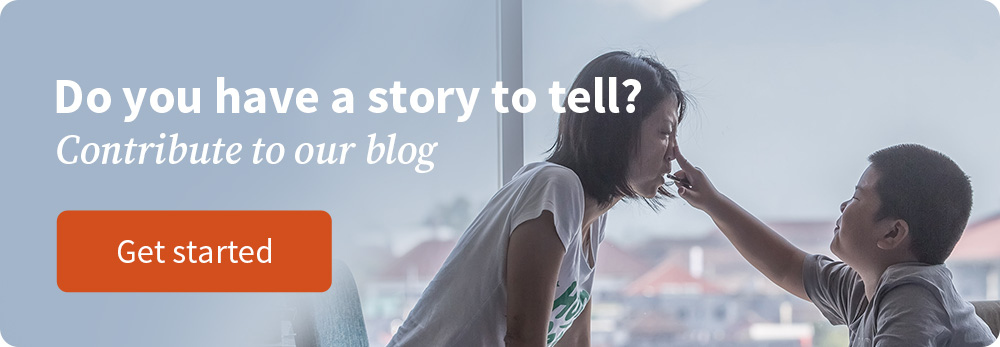An “Invisible” Illness
What you can’t see can still hurt you. But it doesn’t have to get you down, as Nicole demonstrates
“People shouldn’t assume that just because you’re young that you can’t be sick.”
Singaporean Nicole Lim says this halfway into our conversation, and it strikes a deep chord with me.
We know what they say about assumptions; it makes an ass out of you and me. Sure, I knew Nicole had a chronic illness before we met, but I still acted like an idiot.
She had greeted my colleague and me wearing a surgical mask. Faced with the germ-inhibiting screen, I became hypersensitive to Nicole’s condition. I wanted to shake her hand but was worried I would hurt her if I touched her. Should I shake her hand? Could I shake her hand? What would happen if I shook her hand? I decided not to shake her hand. It was an awkward moment.
I assumed she was fragile, but as I was to learn, she is anything but. And such assumptions are what Nicole wants to challenge with her book, How to Be A Good Patient.
Nicole was diagnosed with autoimmune hepatitis five years ago, at 13. The bright-eyed, energetic teenager, who was outgoing, a good student and enjoyed outdoor activities, was suddenly faced with the devastating news that she would never be as healthy as most of her peers.
Now 18 years old, Nicole’s body has weathered a corporeal cyclone that would have ripped apart anyone less mentally and emotionally formidable than she has shown to be.
Autoimmune hepatitis is chronic liver inflammation that occurs when one’s body’s immune system attacks the liver cells. The disease can result in cirrhosis of the liver. On top of a failing organ, Nicole also has primary sclerosing cholangitis — inflammation of the bile ducts — and ulcerative colitis — inflammation of the digestive tract. Earlier this year, doctors confirmed that osteoporosis had set in too, weakening her bones.
But “frail” is hardly how I would describe Nicole.
Removing her mask, I'm met with a radiant, rosy-cheeked girl, whose smile brightened the living room in the fading, evening light. Nicole speaks in eager, girlish tones, but her considered words as she describes her illness belie her youth.
Coming to terms with her diagnosis did not happen overnight. She lived in denial for several years, not fully grasping the extent of her illness, which meant being medicated for the rest of her life and battling fatigue and chronic pain.
It wasn’t until Secondary 3 that she decided to take ownership of her condition, reading up about it and participating in forums, where people with the same disease would share personal experiences and offer advice. Knowing she wasn’t alone, Nicole says it strengthened her resolve to overcome her medical adversities.
“Some people take years to accept being ill. Then you start thinking you’re not as good as others; that’s when the guilt kicks in. I haven’t been able to get rid of my guilt, for instance, for deferring school twice. I still feel I wasted my parents’ money by making them pay again and again.”
Her mum, Camie Choo, has been steadfast in her support, making Nicole’s journey more bearable, and sealing their unshakeable bond, which is evident in the easy manner between them.
The ordeal of hospital visits and medical procedures brought them closer. “She’s my best friend. I love that she’s so weird. She’s this cool mother. I have friends who have strict mothers. One even put a GPS on my friend’s phone to track her. I’m grateful that I don’t have a mother like that.”
Camie is more reserved, but there is a deep respect for her daughter’s tenacity, “What I admire most about Nicole is that she stands up for her rights. In fact, she’s acts more like the mother.”
“Yes, I must nag her a lot,” Nicole chimes in, laughing.
“The other day Nicole scolded me for coming home late,” Camie says, with a wry smile.
“Well, because I was waiting for you to have dinner,” Nicole teases.
Camie explains her approach to bringing up Nicole: “I think I am more lenient, because I feel that we don’t know what will happen in the future, so she should enjoy her life now as much as she wants… Just live one day at a time.”
In August, Camie donated more than 60 per cent of her liver to Nicole.
The transplanted liver has given Nicole a new lease of life. It has also extended the time she will have to create fresh memories with her mum, family and friends.
Nicole’s first milestone since the transplant will be the launch of her book on 23 December. How to Be A Good Patient is a candid account of Nicole’s experiences living with a chronic and life-threatening illness.
It was made possible through Make-A-Wish Singapore, who offered to fulfil a wish for Nicole. She had initially thought she wanted a staycation with her late dog, Fluffy. But an encounter on the way home from school changed her mind.
“I was exhausted, and not feeling well but was asked to get off my seat on the MRT for someone else, (not an elderly person). I joked with my mum that I should flash my transplant card the next time,” recounts Nicole, with a touch of indignation.
“When a person has a chronic illness, it’s sometimes invisible. You don’t know what a person is going through. I wanted to create more awareness about it.”
Her wish-granters from Make-A-Wish Singapore suggested writing a children’s book. Nicole did not want to dilute or downplay her experiences and switched to targeting a general audience, instead.
I think we left Nicole and Camie’s home more appreciative of our health, more aware of encountering those who might not appear sick, and more thankful for the people in our lives, who lift us up when the going gets tough.
I certainly did.
We could all learn a thing or two from Nicole about living large and making the most of every minute we have.
How to Be A Good Patient by Nicole Lim, aka YK Riley, is available online at S$29.90. The books ship only in Singapore. Proceeds go to two good causes (70 per cent to Save-Our-Street-Dogs, a shelter where dog-lover Nicole adopted her second canine, Riley; and the remaining 30 per cent to Make-A-Wish.)
(Photo credit: Nicole Lim)







